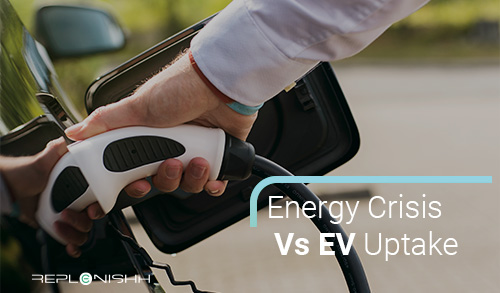
The energy crisis continues to dominate headline news with many households and businesses having grave concerns about their spiralling energy costs, and the current rate of inflation. None of us need any reminders about the current Cost of Living Crisis. The energy price cap in England, Scotland and Wales brought with it some relief following the government announcement in September. It was originally applicable for two years, but the stability of that support is now in doubt, when the government revised its decision, saying it will only be in place until April 2023. But, what does this mean for the EV industry? And with petrol and diesel prices coming down slightly (although starting to rise again), will consumers who had been considering an electric car be scared to commit, and be swayed back to the traditional ICE vehicle? If demand suddenly wanes, what will this mean for EV charging installers? They are all valid questions.
As a key B2B supplier specialising in equipment for the EV charging sector, Replenishh has been delving further and it seems that despite rising energy costs, electric vehicles still appear to be an attractive and worthwhile option. This is backed up by an independent survey of over 2000 UK motorists conducted by Motor Ombudsman, which reveals that 25% of participants at the time said they would be switching to EVs within three months. Similarly, research carried out by the RAC found that 14% of those surveyed wanted their next car to be an EV, with 29% considering a hybrid. This is a significant increase from 2018, when only 3% of respondents were contemplating an electric car.
Despite soaring energy costs, there are financial and environmental benefits to be gained from owning an EV, with many motorists recognising the future as electric. One of the biggest barriers to EV ownership has traditionally been the cost of buying an electric vehicle with its expensive power batteries and technology, and concerns of ‘range anxiety’ with the EV charging infrastructure in the UK still in its relative infancy. The latter is certainly changing, with the installation of many more EV charge points, at home and at the workplace, as well as EV charging bays springing up at public amenities, motorway services, and commercial retail zones. It is also expected that the cost of electric cars will come down, as the market becomes more mature and more competitive.
Other financial benefits include tax concessions (Benefit in Kind) for company car drivers and vehicle road tax, which is based on a scale of carbon emissions, and currently ‘zero cost’ for full electric cars with zero-emissions. This, and the proposed ban on sales of new petrol and diesel cars by 2030, continue to make the EV an appealing option, overriding concerns for many about the cost of electricity.
Many of today’s smart EV charge points can also be powered by renewable energy such as solar panels and wind turbines. EV charging can also be done at off-peak times such as overnight, using lower cost tariffs introduced for the specific purpose of charging an electric car. (Energy generated by the National Grid uses both renewable and fossil-fuel sources.) While there have been some media reports about the rising cost of EV charging, (around 20% increase since September 2021) the average family-sized EV now costs around £28.51 using a rapid charger, which is around £64.00 cheaper than filling the same car with fuel, according to an article published by Fleet News. Other calculations have shown that EV owners using low tariff overnight charging can potentially save £1000 over the course of a year, compared to fuelling up the equivalent car with petrol.
Another financial factor is the growing number of Low and Ultra-Low Emission Zones in cities and towns in the UK representing further costs to drivers of petrol and diesel vehicles, which all adds up if having to travel to these areas on a regular basis.
So, while energy costs are high, the argument for EV ownership is a strong one, with an increasing number of motorists being drawn to the benefits of electric cars. For the EV charging industry, this is positive news as not only will EV charging equipment continue to be high in demand, so will the need for more qualified EV charging installers, especially given the skills shortage.
Jim Rugg, Head of Replenishh, said: “As a major wholesaler of EV charging equipment, we are always monitoring the mood of the industry, and while some media reports have warned of the increased cost of electric vehicle charging caused by high electricity costs, there remains a growing desire from many motorists to go down the hybrid or full-electric route who see environmental, financial and practical benefits from making the switch.”
He adds: “There is still a skills shortage when it comes to EV charging installation. For any electrician considering becoming a qualified EV charging installer, there is genuine demand and financial potential. When you consider that every new-build residential and non-residential building with its own parking, now by law has to have a smart home charger, or workplace EV charge point, as part of updated Building Regulations, it illustrates the scale of ongoing demand for qualified installers. The EV era has only just begun, and it is going to get stronger and stronger.”
With a state-of-the-art warehouse, Replenishh stocks a vast choice of multi-brand EV charging equipment and associated tooling, and has extensive knowledge about charge points, compliance and installation requirements, to give electricians all the support they need for EV charging projects.
“We are a one-stop-shop for the trade with a huge range of competitively priced EV charging products with the option of next day delivery,” says Jim Rugg. “Through our product expertise, and our efficient service, and online systems for trade accounts, we offer our customers true all-round value, and helpful, knowledgeable support.”

Post a Comment